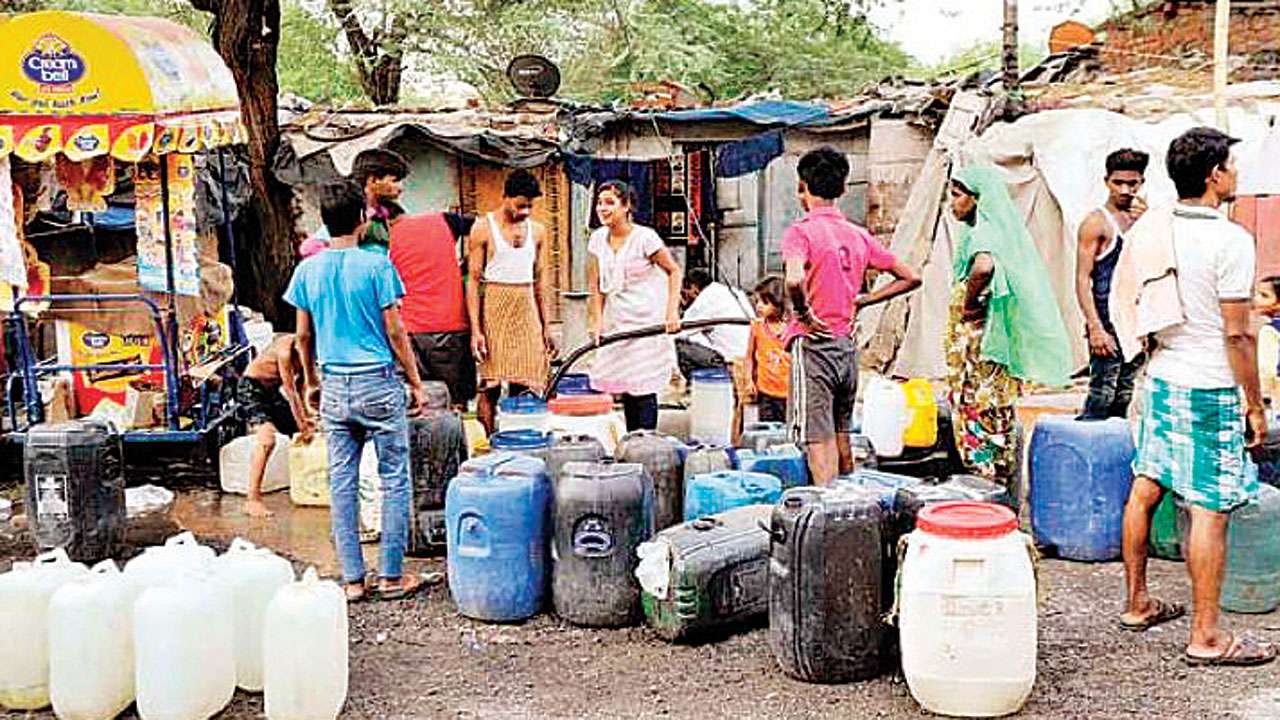
Since humanity has installed conduits that can rapidly carry news over long distance, there is one crisis that is intensifying every day. We now need more and more “news” every day.
As the world really can’t (and hopefully won’t) produce enough real news, we now have to produce news like “Kardashian hires ass-istants (sic) to rub sand on her bum”!
As the audience for news is mostly urban and news is all about novelty (and we are not yet brave enough to promote a Kardashian), there are two opportunity areas that keep getting explored, especially during summer, i.e. “it was never so hot” and “villages are suffering from water scarcity”.
If I revisit my fifty-plus year old memory-bank, temperatures have always gone past 40 C across Gujarat in each summer, and yet each summer is always greeted by news media as if it is a brand new horror unleashed upon humanity by nature.
Actually a summer without 40 C should be real (and scary) news, and yet, for us the urbane cosy in the comfort of air-conditioners, summer is now a novelty that we always find newsworthy.
The news of “kalazal garami” typically finds a worthy companion in “paani mate pokar”, as summer is also the season for images of villagers lining up for water and women walking for kilometres with pots on their heads.
The truth is, just as summers have always been hot, villages have always been struggling for water. So, neither is actually a news, but becomes news because we city-slickers have entered into a technology-woven cocoon that has made us forget what life on earth was like just a split-second before.
While there is no denying that it is a horror that our villagers still have to run around looking for a pot full of drinking water, especially when most of us will keep the tap running while brushing teeth and waste more water in couple of minutes, there is a need to understand that the media crusades that we run every summer to hound the state and curse it for its inhuman attitude are nothing but a distorted depiction of an ancient way of life.
As we brand water scarcity as a tragic infliction upon people, we make those subjected to it feel ill-treated for what they have had as a natural way of life for thousands of years.
In most region of Gujarat where water and fodder are scarce today have had nomadic and shifting populations who had evolved a way of life by accepting local climate as a force of nature moulding their lives. By doing so, they have developed their cultures and lifestyle that has its own pleasures alongside the pain of looking for water.
Unfortunately, when you and I look at an image of people getting water out of a deep well in Kutch, we imagine that it is some sort of horrible suffering. Our empathy is triggered as we imagine us in their place and feel terrified, and that encourages media to turn it into news.
Humans have colonised this harsh planet and have carved out a niche to live in temperatures ranging from plus 50 C to minus 50 C. People in these regions have been living just so, and it doesn’t mean that they are unhappy.
It is our empathy now turned into news is spearing a sense of injustice amongst villages, making them look at a perfectly resolved life they lived for thousands of years as a nightmare. And, if not water, at least the democracy reaching the last man in the village, we have now created a state of unrest that is used by politicians to further their cause of divide and rule.
City-based science nomad who tries to find definitive answers samir.shukla@icloud.com